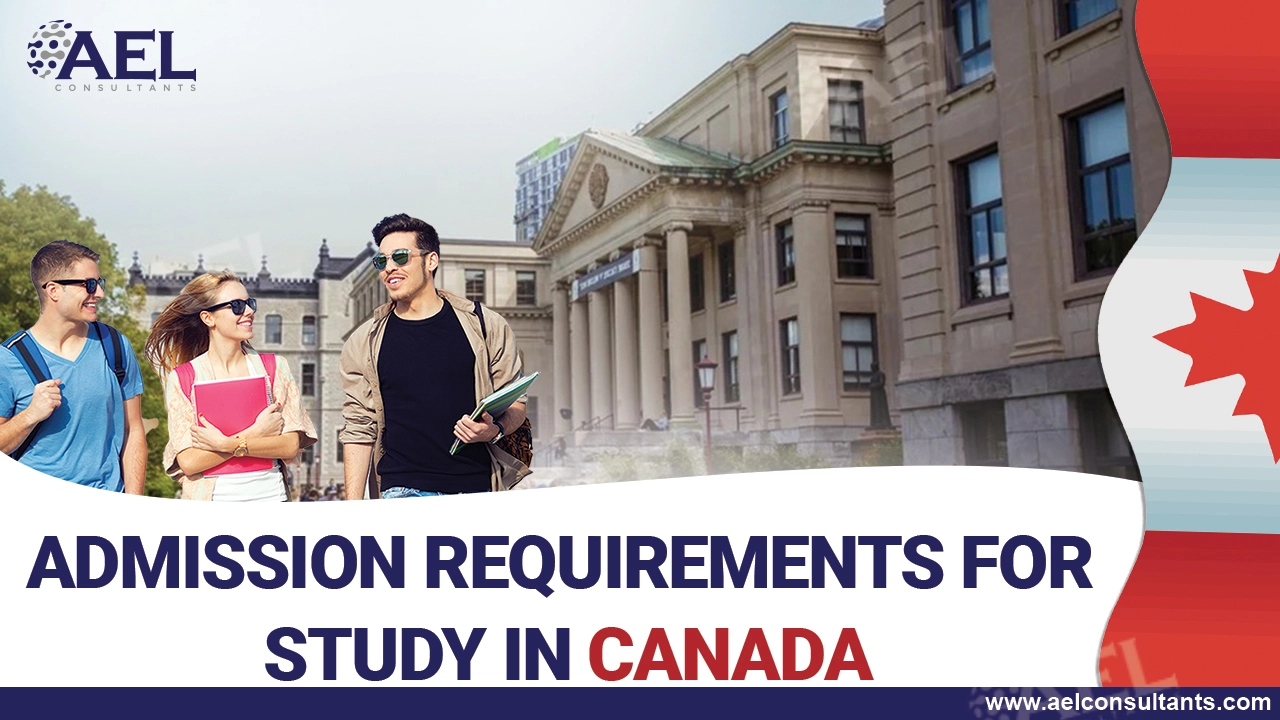Canadian universities generally require a combination of specified admission requirements for study in Canada. Usually, it is built around evidence of outstanding academic performance, confirmation of the standard language requirement in English or French, and documents like a transcript and personal statement. Generally, each university in Canada has specific admission criteria for applicants. This guide will thus contain all the information you need to satisfy the demands and make your application stand out. Use this roadmap from Undergraduate to Postgraduate programs for a smooth admissions process.
Why Canada For Higher Education And What Is Admission Requirements For Study In Canada?
Before applying for the program, one needs to understand why Canada is an excellent destination. Here are some of the world’s best universities with research-based programs, the latest technology, and global networking opportunities. The immigration policies in the country also allow for staying back after graduation to be provided with work experience eventually qualifying for permanent residency. Let’s discuss the main admission criteria before you pack your bags that may help change your academic dream into reality.
Intakes In Canadian Universities
Canadian universities provide three intakes for international students like
- Fall Intakes: This is the most preferred admission period for the students to pursue their education in Canada, students can apply from March to June for September/ fall intake.
- Winter Intakes: This intake is in January, ideal for those who missed the September
- Summer Intakes: This intake is offered for a limited number of courses that can be taken and starts in April/ May.
Academic requirements: the essence of your application.
Canadian universities are very competitive, and the first major step in your process of applying is successfully meeting their academic needs. Since each university can differ in respect to the criteria they maintain, you can generally meet with the following:
Requirements For Enrolling In Canadian
| Course/ Program | Admission Requirements |
| Undergraduate programs | Must have intermediate passing certificate with 60% marks
Statement of Purpose |
| Master’s degree | A 4-year bachelor’s degree passed with a minimum of 70 % marks
Recommendation Letter |
| PhD/ Doctoral program | 2 years master’s degree with research.
Minimum 70% marks Recommendation Letter Research proposal Purpose Statement |
| MBA admission requirements | At least a 4-year bachelor’s degree from a HEC-recognized university.
Job experience 3-5 years GMAT:500-800 |
Standardized Test Scores in Canadian Universities
Foreign students who are applying for a chance in a graduate program in Canada will sit for a suitable standard test for an appropriate graduate level. This is a list of the most usual exams that are accepted in Canada, together with the scores necessary for entrance.
| Study Program | Test Scores MBA |
| MBA and business-related subjects | GMAT: 500-800 |
| MS in different science courses GRE: 300-340 | GRE: 300-340 |
English Language Proficiency To Study In Canada
The admission requirements for foreigners in Canadian universities include TOEFL and IELTS test scores for different study programs. English and French are the two most important languages used in teaching in Canada. Since less stringent criteria apply, then Canadian universities accept students with valid English language test scores. Here are the minimum test scores required in English by the participating Canadian universities.
| Degree Program | IELTS Scores |
| Bachelors, diploma/ certificate Programs | 5 |
| Postgraduate diploma/ master’s programs | 6.5 |
| PhD | 6.5 |
There are several other tests, other than IELTS, that are accepted in Canadian universities for English proficiency.
- CAEL (Canadian Academic English Language Assessment): 60-70
- TOEFL: minimum 90
- PTE: 60-65
French Proficiency Tests
If you plan to apply to schools in French-speaking areas, you might need to pass a language test like TCF or DELF. However, some French-speaking programs may not require proficiency so it is important to verify with your selected program.
How To Get Admission In Canadian Universities Without IELTS?
Students can get admission to Canadian universities or colleges without having an IELTS Exam.
- ESL English as the second pathway
- EAP English as an Academic Pathway
Duration of English Language Courses
- Some different durations depend on the grip that one has on English.
- Universities get your English proficiency before they give you the admission letter or they get it after you arrive in Canada then determine the program’s duration.
Tuition Fee of Language Schools In Canada
The Cost of ESL and EAP is dependent on the period of study. Some Canadian universities may cost 4000- 15000 CAD for a twelve-week English language course program.
Requirements Of Documents For Canadian Universities Application
- These are necessary documents for the application.
- Application form
- Transcript of your previous degree
- High school certificate (applicants applying for undergraduate programs)
- A master’s degree (undergraduates applying for a postgraduate program).
- Post-graduation degree (candidates applying for post-graduation)• English proficiency norms (for instance, IELTS, TOEFL, or any other assessment).
- Reference Letter
- English Language test ( IELTS TOEFL, OR OTHERS)
- Statement of Purpose
- Resume/ cv
Application Process And Admission Requirements For Study In Canada
The requirements for applying for admission to Canadian universities are simple. Each university has its conditions and its requirements for its students to become admitted to the universities and colleges respectively. But a standard method of application followed by most of the Canadian university is as follows
- Select a study program and the university
- collect all the genuine information from the university’s official website
- Ensure that the institute is accredited and recognized by the government of Canada In essence; it has to be a DLI (Designated Learning Institution that lets in international students).
- Submit an online application
Complete necessary documentation
- Wait for your acceptance response via email.
- After receiving the acceptance letter apply for the visa, and complete the admission by paying the fees and other documents needed by the university.
Conclusion:
Your Road to a Successful Application Applying to Canadian universities sounds big, but not impossible. Ensuring all the required criteria, academic, language, and program-specific criteria are met in advance would allow gathering all the supporting documents for an application, thereby ensuring admission into one of the well-reputed institutions in Canada.
So start early, keep everything organized, and tailor your application to show your strengths. With the recognized education system and diverse opportunities in Canada, this could be your first step toward a bright future!





